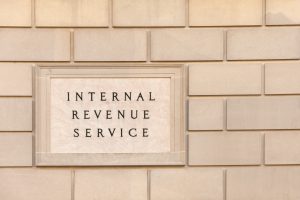
Recently the Treasury issued TD 9925 which contains final guidance under section 274 of the Internal Revenue Code regarding amendments made to the deductibility of meals and entertainment costs with passage of the Tax Cuts and Jobs Act at the end of 2017.
Worldwide ERC previously reported on this topic after the IRS issued transitional guidance through notice 2018-17 providing clarification on the changes, and in February 2020 the IRS published notice of REG 100814-19 containing proposed language and opened a time period for public comment. Few points of the proposed regulation were challenged, but requests for some minor update to language and definitions and the addition of scenario examples became part of the final regulation.
Summary of the Final Revisions
Entertainment
Prior to 2018 tax treatment of entertainment costs were subject to the same general conditions as meals:
-The item was directly related to the active conduct of business.
-The item was directly proceeding or following a bona fide business discussion.
-Taxpayer deduction was limited to 50% of the costs incurred related to both meals and entertainment.
Provisions of the TCJA disallows deduction for dues or fees to any social, athletic or sporting club or organization. In short, any activity which is “of a type considered to constitute entertainment, amusement or recreation, such as entertaining at bars, theatres, country clubs, golf and athletic clubs, sporting events, and on hunting, fishing, vacation and similar trips…”. The elimination of entertainment expense now requires that treatment for food and beverage associated with entertainment events to fall under code section 274 regulations on meals.
Meals
During entertainment events food and beverage must be itemized separately in order to be deductible. When not purchased separately from the event the standard cost of food and beverage, tax and gratuity, must be itemized to allow for a 50% deduction. If there is no way to allocate or separate the F & B from the cost of the entertainment the taxpayer is not allowed to take a deduction for the expense.
Business meals for employees and business associates are also limited to a deduction equal to 50% of the costs incurred. Furthermore, the regulations incorporate statutory requirements that the taxpayer must meet to take the deduction. Specifically that the expense cannot be lavish or excessive, and the taxpayer or taxpayer’s employee must be present at the time of the meal. Section 274 provides many examples as to proper treatment of meals provided to on-site employees, snacks in a breakroom, coffee and treats at an open house or business meetings, to illustrate proper deductibility of these costs by taxpayers.
How This Impacts Mobility
By now most Worldwide ERC members have adopted to the meal and entertainment regulations post TCJA, and not much will change with these final regulations. The detail found within the new regulation should answer any lingering uncertainties as to what is considered “entertainment”, how to account for food and beverages during an event, and the proper treatment of meals, snacks and treats provided to employees, clients and the general public, as well as to assignees on short term assignments.